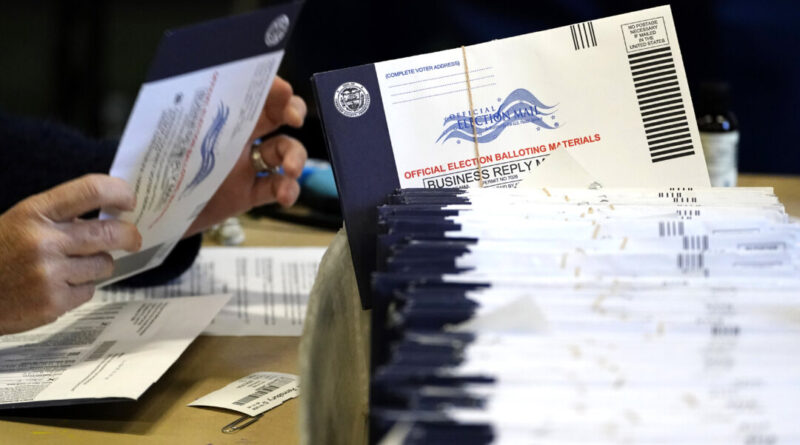Democratic State Attorneys General Take Legal Action Against Trump’s Voting Executive Order
The lawsuit contests an order that is intended to mandate that voters provide proof of citizenship in order to cast their votes.
A coalition of 19 Democratic state attorneys general initiated a lawsuit on April 3 challenging President Donald Trump’s executive order, which mandates voters to confirm they are U.S. citizens and prohibits states from counting mail-in ballots received after Election Day.
“The president’s attempt to control our elections, intimidate voters, and restrict Americans’ voting rights is unconstitutional, undemocratic, and frankly, un-American,” stated New York Attorney General Letitia James, a Democrat.
Last year, states that joined the lawsuit permitted the counting of late ballots that were postmarked before Election Day, as long as they arrived within a stipulated timeframe dictated by state law.
In his order, Trump referenced the policies of Denmark and Sweden regarding the rejection of late-arriving mail-in ballots regardless of their postmark date, suggesting the United States should adopt a similar approach.
California and Nevada spearheaded the collective of 19 states arguing that Trump does not possess the unilateral authority to modify state electoral procedures. According to them, Congress has the power under the Constitution to preempt state laws regarding federal elections.
“Neither the Constitution nor Congress grants the president the authority to impose voting restrictions,” California Attorney General Rob Bonta, a Democrat, stated in a press release.
The Democratic National Committee, along with Democratic congressional leaders, Senate Minority Leader Chuck Schumer (D-N.Y.) and House Minority Leader Hakeem Jeffries (D-N.Y.), are already pursuing legal action against Trump’s order.
In their lawsuit, the 19 states contended that the directive infringes upon the Constitution and the National Voting Rights Act, which permits voting as long as an individual attests to their citizenship under the threat of perjury.
While Democrats maintain that it is already illegal for non-citizens to vote, Republicans have raised concerns that the absence of verification may enable some noncitizens to falsely register.
The attorneys general also criticized Trump’s order for violating states’ constitutional authority over elections, alleging that he used threats of federal funding loss and possible Justice Department investigations to pressure them into compliance.
Trump, in his order, claimed that states “fail adequately to vet voters’ citizenship, and, in recent years, the Department of Justice has not prioritized or allocated sufficient resources for enforcement of these regulations,” alleging that the Biden administration permitted illegal immigrants on state voter rolls.
Upon announcing the executive order, the president stated it was necessary to “straighten out our elections.”
Reuters contributed to this report.





